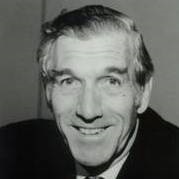IC83 Invited Address 01 - Hypnotherapy Without Trance - Paul Watzlawick, PhD
- Average Rating:
- Not yet rated
- Topic Areas:
- Hypnotherapy | Invited Addresses | Language of Hypnosis
- Categories:
- Erickson Congress | Erickson Congress 1983 | Pioneers in Couples and Family Therapy
- Faculty:
- Paul Watzlawick, PhD
- Duration:
- 54:59
- Format:
- Audio Only
- Original Program Date:
- Dec 03, 1983
- License:
- Never Expires.
Description
Description: Address at the International Congress on Ericksonian approaches to hypnosis and psychotherapy which emphasized the therapeutic potential of language structure over content. Watzlawick critiqued traditional psychotherapy's reliance on reason and linear causality, advocating for techniques like learning the patient's language, avoiding negations, and using metaphors and stories. He also highlighted the importance of non-verbal communication and the right hemisphere's role in therapy. He also discussed the paradoxical nature of reality and the therapeutic use of paradox, suggesting that our perception of reality is more a language game than an objective truth.
Credits
Faculty

Paul Watzlawick, PhD Related Seminars and Products
Paul Watzlawick, received his Ph.D. from the University of Venice in 1949. He has an Analyst's Diploma from the C.G. Jung Institute for Analytic Psychology in Zurich. Watzlawick has practiced psychotherapy for more than 30 years. He was research associate and principal investigator at the Mental Research Institute. He was Clinical Professor at the Department of Psychiatry and Behavioral Sciences, Stanford University Medical Center. Watzlawick is a noted family therapist; he is recipient of the Distinguished Achievement Award from the American Family Therapy Association. Also, he is author, co-author or editor of eight books on the topics of interactional psychotherapy, human communication and constructivist philosophy.
He formulated five axioms. They are:
- It is not possible to not communicate. Every behavior is some kind of non-verbal communication.
- Every communication has a content. In addition, there is 'metainformation', which says how the communicator wants to be understood.
- All partners involved in a communication process also interpret their own behaviour during communication.
- Human communication involves both verbal and non-verbal communication. In addition to the spoken words, there are is also a non-spoken part (gestures, behavior, intonation..) which is part of the communication.
- Communication between humans is either symmetric or complementary. This is based on whether the relationship of those communicating is based on differences or parity.


